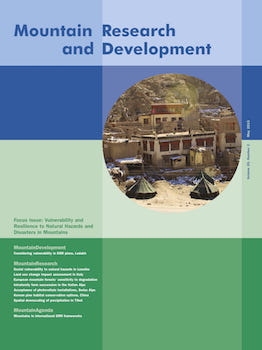The Mapuche in Modern Chile: A Cultural History by Joanna Crow. Gainesville, FL: University Press of Florida, 2013, xvi + 288 pp. US$ 26.95. ISBN 978-0-8130-6039-2.
Chile has long portrayed itself as a nation founded upon European immigration and the assimilation of indigenous culture within national identity. However, since the return to democratic rule in 1990 after 17 years of Augusto Pinochet's dictatorship (1973–1990), the Mapuche social movement has been the foundation for many indigenous people in Chile to publicly defy official narratives of assimilation and stake claims of cultural diversity. The emergence of new forms of indigeneity in Chile has brought major international academic interest to Mapuche society. The Mapuche in Modern Chile joins a recent body of anglophone monographs on Mapuche society (Haughney 2006; Bacigalupo 2007; Dillehay 2007; Course 2011; Richards 2013) that illustrates the heterogeneity of everyday and public practices through which Mapuche people affirm and sustain their difference within dominant ideologies of national unity. In comparison with other recent titles, the novelty of Crow's work consists in her approach, which she defines as cultural history. Rather than analyzing contemporary processes of identity-making in Chile or corroborating the profound historical continuity of Mapuche culture from precolonial times, Crow illustrates the historical transformative processes through which Mapuche people and nonindigenous Chileans have constructed the Mapuche as a social category. In the author's words, this book “narrates a defiant history of difference, […] but it seeks to show that what it means for the Mapuche to be ‘different’ has changed according to the historical and political context in which difference is being enunciated, and who is doing the enunciating” (p 18).
I believe that Crow's project of cultural history is a ground-breaking contribution to the emerging field of Mapuche studies for two main reasons. First, this book blends a chronological narrative concerning representations of Mapuche society with a careful examination of the role that these representations still hold in the articulation of Mapuche cultural difference. Crow's work might at first appear as a canonical ordering of postcolonial Mapuche history. Each of the 6 main chapters deals with specific historical eras: the conquest by the Chilean republic (1862–1910); the first steps of Mapuche participation in Chilean political life (1910–1938); the emergence of state projects of indigenous emancipation (1938–1964); the influence of leftist politics on Mapuche grassroots movements (1964–1973); the Mapuche position within the nationalist agenda of Pinochet's military regime (1973–1990); and the more recent engagement of Mapuche people with neoliberal multiculturalism (1990 to present). However, drawing on Foucault's analysis of power and representation, Crow goes beyond a classic chronological narrative to illustrate how specific images about the past are articulated, exchanged, and disputed within particular historical formations. For instance, chapter 1 shows that contemporary official narratives emphasize the peace-making character of the 19th century military invasion by the Chilean army, which aimed at bringing an end to the anarchy in which the region of Araucania had fallen as a consequence of internal war between settlers and Mapuche groups. This narrative is not simply part of the past, as it is today subject to numerous critiques by Mapuche and some nonindigenous Chilean writers.
Second, Crow's book demonstrates the profoundly dialogical and contested nature of culture in the context of interethnic relations in Chile. Difference rather than identity is the necessary premise to understand Mapuche as a shifting social category redefined by both indigenous and nonindigenous people. In contrast with customary definitions of culture as a given and stable set of practices and goods reproduced by a homogeneous group, Crow approaches culture as an essentially relational category. The anthropologist Roy Wagner has coined the expression “invention of culture” to illustrate that culture becomes a meaningful category only in the context of alterity (Wagner 1981). While Crow does not explicitly engage with the mutuality of Mapuche–winka (non-Mapuche) cultural inventions, she provides some fascinating insights into how claims of diversity unfold in interethnic contexts characterized both by disputes over representation of indigenous identity and by dialogue between indigenous and nonindigenous actors. The engagement of Mapuche people with non-Mapuche spaces, such as universities and governmental agencies, is thus central to the historical constitution of indigenous identity. Such a phenomenon began as early as the first instances of activism and participation in Chilean political life. In chapter 2, Crow analyzes the divergent attitudes and actions of Mapuche political figures in the first half of the 20th century towards the consequences of assimilatory policies on cultural survival and protection against land grabbing. As in the rest of the book, this chapter eloquently shows that not only are boundaries between Mapuche and Chilean society blurred, but such permeability is what has allowed Mapuche people to stake claims of diversity and defy official narratives of acculturation.
This book will certainly attract a wide audience of readers interested in indigeneity in Latin America. The Mapuche in Modern Chile blends a graceful narrative with a rigorous analysis of archival sources and texts produced by both Mapuche and nonindigenous writers. The author not only carefully provides textual and archival evidence to sustain all the case studies presented in this book, she also creatively juxtaposes them to illustrate the heterogeneous consequences that historical processes affecting Chilean society at large have had on Mapuche processes of identity-making and self-determination. Crow's careful engagement with different types of sources (textual, archival, and those obtained from interviews) makes this book appealing to readers from different disciplinary areas, such as history, literary studies, and social sciences. As an anthropologist working on the bureaucratization of indigenous land claims in Chile, I have found this book's suggestions on the interethnic construction of the Mapuche as a social category extremely stimulating in my analysis of the interaction between indigenous claimants and state actors (Di Giminiani 2012). However, this is only one of the many ways in which a reader can enjoy Joanna Crow's book.
Open access article: please credit the authors and the full source.





